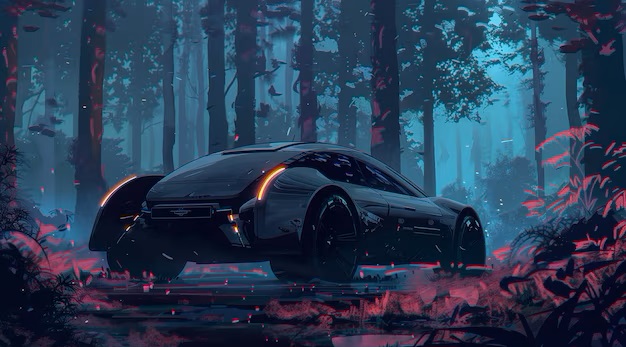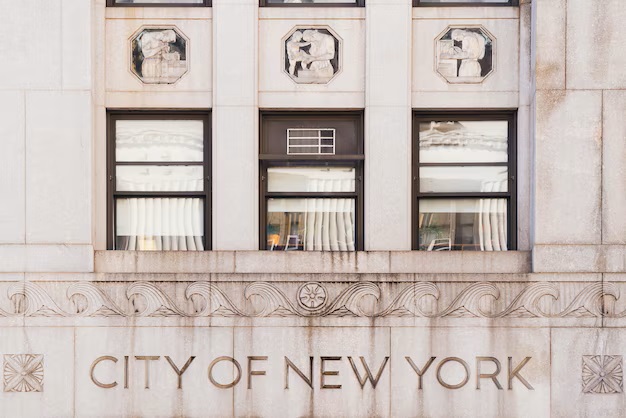In the realm of cinematic lore, few vehicles hold as much allure and cultural significance as the one that has captured the imaginations of audiences for decades. The ongoing tensions surrounding its ownership have recently reached a turning point, shedding light on the complexities of intellectual property in the entertainment industry. This situation serves as a fascinating case study in how creative works intersect with legal frameworks.
With the narrative now taking a favorable turn, parties involved have come together to find common ground, prioritizing resolution over conflict. This development not only paves the way for future collaborations but also underscores the importance of protecting beloved symbols that resonate with fans worldwide. As discussions move forward, it is crucial to appreciate the historical context and the impact such agreements have on popular culture.
Ultimately, this outcome represents a harmonious reestablishment of rights that will allow for continued engagement with a cherished icon. Through mutual understanding and negotiations, the stakeholders involved have demonstrated adaptability and a commitment to preserving legacies that enrich the cinematic landscape. This incident invites reflection on the broader implications of such agreements in the constantly evolving landscape of film and entertainment.
NBCUniversal’s Legal Victory Explained
The recent court ruling marks a significant triumph for the entertainment giant concerning its intellectual property rights. This resolution not only underscores the importance of protecting creative works but also sets a precedent for similar cases in the future. The outcome is a clear message about the value placed on iconic cultural symbols and the legal frameworks that support them.
Details of the Case
The case centered on the use of an iconic vehicle from a beloved film franchise. The firm argued that unauthorized use of its imagery and branding could lead to potential confusion among consumers and harm the reputation of its established properties. Throughout the proceedings, the importance of clearly delineating ownership in the realm of popular culture was emphasized.
Implications for the Industry
This ruling not only reinforces the rights of creators but also serves as a cautionary reminder to individuals and businesses about the significance of upholding intellectual property laws. The decision is expected to influence how others approach similar situations, ensuring that the creative industries can protect their assets and maintain the integrity of the narratives they develop.
Background of the DeLorean Trademark Issue
This section explores the historical context surrounding the ownership and usage rights related to a certain iconic vehicle associated with a famous film franchise. Over the years, various parties have engaged in legal battles concerning the intellectual property linked to this film’s renowned automobile, reflecting the complexities of rights in modern media and merchandise.
The origins of these conflicts can be traced back to the initial marketing and licensing of merchandise inspired by the cinematic saga. As the popularity of the film grew, so did the demand for products featuring the vehicle, leading to complications over who held the rights to produce and sell such items. Various claims arose, resulting in a protracted struggle among the involved entities.
Attempts to navigate these challenges highlighted the intricacies of copyright and brand management, as well as the importance of maintaining control over a beloved cinematic artifact. The resolution of these matters is crucial not only for preserving the legacy of the film but also for ensuring that fans can continue to enjoy related products in a manner that respects original creators and rights holders.
Impact on ‘Back to the Future’ Franchise
The resolution of recent legal issues surrounding a beloved cinematic icon has far-reaching implications for the overall franchise and its cultural footprint. With clarity restored, the potential for rejuvenation and expanded opportunities can now be explored, allowing creators and fans alike to engage more deeply with a rich narrative universe.
This development not only alleviates uncertainty but also opens doors for innovative projects. Merchandising strategies, potential remakes, and collaborations are now conceivable, fostering a revitalized interest in the series that has captured audiences for decades. Additionally, it could pave the way for new storytelling avenues, incorporating fresh perspectives while honoring the original vision.
Lastly, the enduring legacy of this iconic brand remains intact, allowing nostalgic fans to connect with classic elements while welcoming a new generation into the fold. As the narrative continues to evolve, the essence of the franchise will undoubtedly thrive, ensuring its place in popular culture for years to come.
Public Reaction to the Resolution
The conclusion of the recent controversy surrounding the iconic time-travel vehicle has sparked considerable interest among fans and observers alike. Many took to social media to express their opinions, leading to a mix of excitement, relief, and some disappointment. The outcome appears to have resonated largely with enthusiasts who feel a strong connection to the cultural significance of the subject matter.
Mixed Emotions from Fans
Among devoted followers, the resolution has been met with enthusiasm, celebrating the preservation of a beloved symbol. Fans expressed joy over the continued legacy associated with the cinematic classic. However, there are voices of dissent, raising concerns over the implications of the resolution for future creative endeavors involving iconic trademarks.
Community Engagement and Discussions
The development prompted a flurry of discussions in various online forums, with participants debating the ethical considerations of intellectual property versus cultural heritage. Many audience members emphasized the importance of maintaining accessibility to iconic elements of popular culture, arguing that they should remain available for new generations to enjoy and reinterpret.
Future of the DeLorean Brand
The legacy surrounding a certain iconic automobile is set to expand, with new opportunities on the horizon. As enthusiasts eagerly anticipate developments, the brand aims to reinvigorate its presence while maintaining its nostalgic roots. This movement represents not just a revival but a reimagining of the narrative that has captivated fans for decades.
| Aspect | Details |
|---|---|
| New Models | Plans are underway to introduce updated versions that cater to modern tastes and technologies. |
| Merchandising | Expansion into various merchandise, including collectibles, apparel, and themed products. |
| Collaborations | Partnerships with other brands in entertainment and automotive sectors are being explored. |
| Cultural Impact | Efforts will focus on tapping into the cultural significance, engaging new audiences through media and events. |
Looking ahead, the brand’s strategy will involve a blend of nostalgia and innovation, striving to bridge the gap between past admiration and future aspirations. Engaging with loyal fans while attracting new enthusiasts will be paramount to sustain its relevance in an ever-evolving market.
Significance of Trademark Protection
Safeguarding brands serves as a cornerstone of consumer trust and market identification. It establishes a crucial link between consumers and the products or services they rely on. When entities protect their distinctive signs, they contribute to creating an environment where quality and reputation are upheld, thus benefiting both businesses and customers alike.
Benefits for Businesses
- Enhances brand value and recognition in the marketplace.
- Prevents unauthorized use or imitation that could dilute brand identity.
- Facilitates legal recourse against infringement, ensuring a fair competitive landscape.
Consumer Confidence
- Assures customers regarding the origin and quality of products.
- Reduces the likelihood of confusion between similar offerings.
- Fosters loyalty by maintaining consistent standards across goods and services.
Q&A: Nbcuniversal settles back future delorean trademark case
What was the main issue in the DeLorean trademark dispute involving NBCUniversal?
The main issue revolved around the trademark rights associated with the iconic DeLorean time machine featured in the “Back to the Future” movie franchise. NBCUniversal, which owns the rights to the films, was in a legal conflict regarding the use of the DeLorean name and imagery in various products and promotions. The company aimed to protect its intellectual property, ensuring that any use of the DeLorean brand aligns with its portrayal in the films and does not mislead consumers.
How did NBCUniversal finally resolve the dispute concerning the DeLorean trademark?
NBCUniversal resolved the dispute through a series of negotiations with the parties involved. The resolution involved coming to an agreement that allowed for the continued use of the DeLorean name in merchandise and media, while ensuring that NBCUniversal retained control over its branding and any related licensing agreements. This agreement is expected to benefit both parties by allowing for the promotion of the franchise while also respecting the rights of the original trademarks.
What implications does the resolution of the DeLorean trademark dispute have for fans of Back to the Future?
The resolution of the trademark dispute has positive implications for fans of “Back to the Future.” It ensures that the DeLorean brand, along with the associated nostalgia of the franchise, will continue to be represented in merchandise and media correctly. Fans can look forward to new products and promotions that honor the legacy of the films. Additionally, it reinforces the protection of intellectual property within the entertainment industry, signaling the importance of proper branding to both creators and consumers.
Will the DeLorean car be produced again as a result of this trademark resolution?
While the trademark resolution does not directly lead to the production of new DeLorean cars, it may open the door for new collaborations or licensing deals that could revive interest in the vehicle. The DeLorean Motor Company has been known to produce limited reissues of the classic car. The resolution might encourage potential partnerships where the DeLorean could be featured in future projects or merchandise, keeping the legacy of the car alive within popular culture.
Are there any risks associated with NBCUniversal’s control over the DeLorean trademark?
Yes, there are potential risks associated with NBCUniversal’s control over the DeLorean trademark. For instance, strict enforcement of the trademark rights could limit creative expressions or fan-made projects that pay homage to the franchise. While protecting intellectual property is crucial for a brand’s integrity, it could lead to backlash from the fan community if they perceive the company as overly restrictive. Striking a balance between protection and accessibility will be vital for NBCUniversal as they navigate their role in the ongoing legacy of “Back to the Future.”
What led to the trademark dispute over the DeLorean from Back to the Future?
The trademark dispute arose from NBCUniversal’s attempts to protect its rights to the DeLorean time machine, a key element of the “Back to the Future” franchise. Various parties, including the car manufacturer DeLorean Motor Company and other entities, began to use the DeLorean name and image for different commercial purposes, creating confusion about ownership and branding. NBCUniversal sought to enforce its trademark rights to ensure the integrity of the franchise, leading to legal negotiations and disputes that needed to be resolved.
What was the main issue in the lawsuit between DeLorean Motor Company and NBCUniversal, and how was it resolved?
The lawsuit filed by DeLorean Motor Company against NBCUniversal Media LLC focused on the unauthorized use of the DeLorean trademarks, specifically the iconic DeLorean DMC-12 sports car that famously served as the time machine in the “Back to the Future” film series. The case, filed in the U.S. District Court for the Central District of California, argued that NBCUniversal had failed to pay the full amount of royalties owed for the continued use of the classic DeLorean car in merchandise and tie-ins. The lawsuit cited a breach of agreement with the original DeLorean Motor Co., founded by John DeLorean, and accused NBCUniversal of trademark infringement. According to a filing, the lawsuit was settled, with NBCUniversal agreeing to terms that ensure DeLorean cars and trademarks will continue to appear in future merchandise and commercial partnerships.
Why was the DeLorean DMC-12 sports car significant in both the lawsuit and popular culture?
The DeLorean DMC-12 sports car became an iconic cultural symbol after its appearance in the blockbuster “Back to the Future” film series, where it famously served as the time machine. The original DeLorean Motor Company, founded by John DeLorean, developed the car with a unique stainless-steel body and gull-wing doors, which were trademarked features. The trademark infringement lawsuit between DeLorean Motor Company and NBCUniversal centered on NBCUniversal’s continued use of the DeLorean’s image in merchandising without fully compensating DeLorean Motor Company. After the settlement, it was confirmed that fans would continue to see DeLorean cars and trademarks featured in “Back to the Future” merchandise in the future, honoring the car’s legacy in film and pop culture.
What was the outcome of the recent trademark lawsuit between DeLorean Motor Co. and NBCUniversal, and what did it entail for the iconic DeLorean sports car?
DeLorean Motor Co. and NBCUniversal settled a trademark lawsuit over the continued use of the DeLorean DMC-12 sports car famously featured in the “Back to the Future” blockbuster film series. Filed in a California federal court, the lawsuit alleged that NBCUniversal, along with its partner Amblin, was using the DeLorean trademarks for merchandising and commercial tie-ups without paying the full royalties owed. In a filing last month, District Judge David Carter oversaw the case, with DeLorean Motor Company’s attorney, Roger Behle of Foley Bezek Behle, representing the trademark owner. The settlement ensures that DeLorean Motor Co. retains rights in the DeLorean’s image, allowing NBCUniversal to continue using the car in Universal Studios theme parks, merchandising, and additional projects like “Ready Player One,” while agreeing to a structured royalty payment plan.
How did the DeLorean Motor Co. trademark owner argue their position in court, and what was the significance of the case?
In the federal court case against NBCUniversal, the trademark owner, DeLorean Motor Co., represented by attorney Roger Behle, argued that NBCUniversal was unlawfully profiting from the DeLorean DMC-12’s appearance in “Back to the Future” and other merchandising tie-ins. DeLorean Motor Company filed the lawsuit accusing NBCUniversal of trademark and trade dress infringement, stating it had failed to honor an agreement originally established with John DeLorean. The owner of DeLorean Motor Co. said the lawsuit over its continued use of DeLorean trademarks highlights the company’s commitment to protecting its brand legacy and rights in the DeLorean. The settlement reached last month reinforced DeLorean’s rights in the car’s iconic image, ensuring future use in Universal Studios theme parks and in other projects while paying royalties for the commercial tie-ups.
What recent developments occurred in the trademark lawsuit over its continued association with the iconic Delorean sports car?
Recently, NBCUniversal has settled a trademark lawsuit against NBCUniversal Media involving the iconic Delorean sports car. The case last month accused NBCUniversal of failing to respect the Delorean trademark owner Delorean Motor Co.’s rights in its bid to end the case. The trademark owner Delorean Motor Co. told that Delorean may have been able to show at trial that NBCU was using Delorean trademarks without permission. This settlement comes as part of an agreement with John Delorean, the original creator of the DMC-12 sports car famously served in the “Back to the Future” franchise, highlighting the ongoing significance of tie-ups involving the iconic Delorean.
What was the outcome of the recent Delorean trademark infringement case involving NBCUniversal and Amblin?
Curtis settles the Delorean trademark infringement case with NBCUniversal and Delorean trademark owner. The end of the case last month and said that Delorean may have been able to argue its position regarding the appearance of the Delorean car, which is heavily tied to the “Back to the Future” franchise. This settlement marks a significant moment in the ongoing relationship between NBCU, Amblin, and the Delorean trademark owner, ensuring that future uses of the trademark respect the rights of Delorean Motor Co.
What is the recent development regarding the nbcu and Delorean trademark owner, particularly in relation to the settlement of Delorean Motor?
In a recent case involving nbcu and Delorean trademark owner, the issue revolved around accusations of failing to uphold trademark rights. The case, which ended last month, focused on the use of the iconic DeLorean from “Back to the Future.” Following the conclusion of the case, nbcu made headlines by announcing the settlement of Delorean Motor, resolving the disputes that had arisen over trademark concerns.
What is the significance of the universal and Amblin partnership in recent media projects?
The universal and Amblin partnership has been pivotal in bringing innovative storytelling to the forefront of the entertainment industry. This collaboration has produced a series of successful films and television projects that resonate with audiences. However, the partnership faced scrutiny recently when critics began to question its efficacy, particularly in light of the allegations that arose to end the case last month, accusing it of failing to meet certain industry standards and expectations.








